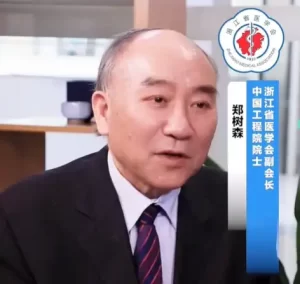Long-Lasting HIV Medication: Only Two Shots a Year
- Paternal Microbiome Perturbations Impact Offspring Fitness
- New Report Casts Doubt on Maradona’s Cause of Death and Rocks Manslaughter Case
- Chinese academician unable to provide the exact source of liver transplants
- Early Biomarker for Multiple Sclerosis Development Identified Years in Advance
- Aspirin Found Ineffective in Improving Recurrence Risk or Survival Rate of Breast Cancer Patients
- Child Products from Aliexpess and Temu Contain Carcinogens 3026x Over Limit
Long-Lasting HIV Medication: Only Two Shots a Year
- AstraZeneca Admits for the First Time that its COVID Vaccine Has Blood Clot Side Effects
- Was COVID virus leaked from the Chinese WIV lab?
- HIV Cure Research: New Study Links Viral DNA Levels to Spontaneous Control
- FDA has mandated a top-level black box warning for all marketed CAR-T therapies
- Can people with high blood pressure eat peanuts?
- What is the difference between dopamine and dobutamine?
- How long can the patient live after heart stent surgery?
Long-Lasting HIV Medication: Only Two Shots a Year, Shows Positive Phase 2/3 Clinical Data for Multidrug-Resistant HIV Treatment.
HIV, short for Human Immunodeficiency Virus, is a virus that causes Acquired Immunodeficiency Syndrome (AIDS). HIV targets the body’s immune system, specifically the critical CD4+ T cells, leading to their destruction. Over a span of several years, even up to a decade or more, this can progress into AIDS, leaving the immune system severely compromised and making the individual vulnerable to various infections, often culminating in malignancies and ultimately death.
According to data from the United Nations Programme on HIV/AIDS (UNAIDS), there are currently an estimated 38 million people worldwide living with HIV or AIDS. While there is no cure for AIDS, antiretroviral therapy (ART) has allowed individuals living with the virus to manage it effectively and lead relatively healthy lives.
Lenacapavir, developed by Gilead Sciences, is a groundbreaking HIV-1 capsid inhibitor that has received approval from the U.S. FDA for the treatment of multidrug-resistant HIV in adult patients, in combination with other antiretroviral drugs (ART). What makes Lenacapavir unique is that it is the longest-lasting HIV treatment approved by the FDA, requiring just one dose every six months. This simplifies, streamlines, and enhances the effectiveness and safety of HIV treatment for those who need lifelong therapy.
Recently, researchers from the Yale School of Medicine published a study in The Lancet HIV, titled “Efficacy and safety of the novel capsid inhibitor lenacapavir to treat multidrug-resistant HIV: week 52 results of a phase 2/3 trial.”

Lenacapavir is a novel type of antiretroviral drug (ART) that has shown remarkable treatment success due to its novelty, as patients have not been previously exposed to it, addressing one of the major challenges of current HIV treatment – drug resistance.
For individuals living with HIV, some may develop resistance to the drugs as treatment progresses. Additionally, some people contract the virus from individuals with drug-resistant strains of HIV.
This phase 2/3 clinical trial aimed to evaluate the efficacy and safety of Lenacapavir over one year (52 weeks) in adult patients with multidrug-resistant HIV. Participants were divided into two cohorts of 36 individuals each. In cohort 1, participants were randomly assigned in a 2:1 ratio to receive either oral Lenacapavir with their existing failing treatment regimen or a placebo with their existing failing regimen.
After two weeks, the oral Lenacapavir group transitioned to subcutaneous injections of Lenacapavir every 26 weeks (every six months), while the placebo group began receiving Lenacapavir treatment (initially oral, followed by subcutaneous injections) after two weeks. Cohort 1 started an optimized background treatment regimen two weeks into the trial. In cohort 2 (non-randomized), participants started an optimized background treatment regimen and received Lenacapavir treatment (initially oral, followed by subcutaneous injections) simultaneously.

After two weeks of treatment, cohort 1 participants were tested, and among the 24 patients receiving Lenacapavir, 21 (88%) had a reduction in HIV-1 viral copies by more than half, while in the placebo group, only 2 out of 12 patients (17%) achieved a similar reduction. The researchers noted that these patients, who had limited treatment options due to multidrug resistance, saw a remarkable reduction in HIV-1 viral copies, demonstrating the incredible efficacy of Lenacapavir. At one year of treatment (week 52), 83% of the participants in cohort 1 had HIV-1 viral copies below 50 copies/mL, and 86% had levels below 200 copies/mL.
Data at one year of treatment (week 52) also showed that Lenacapavir helped boost the immune systems of patients. This could translate into a better prevention of opportunistic infections such as salmonella and tuberculosis, reducing the associated risk of mortality.

Virological and immunological responses at 52 weeks of treatment
How does this novel medication work?
Lenacapavir is an inhibitor of the HIV capsid, which contains the virus’s RNA and proteins. HIV relies on the capsid to enter human cells and replicate inside them. Lenacapavir operates in two ways: first, by preventing HIV from reaching the nucleus of infected cells, thus impeding integration and replication, and second, by interfering with the production of defective offspring viruses within the human genome, rendering them incapable of infecting other cells. Lenacapavir disrupts HIV replication both in the early and late stages of the virus’s lifecycle. This makes it effective against multidrug-resistant strains, unlike many other antiretroviral drugs that target specific stages of virus replication.
Furthermore, Lenacapavir offers the advantage of long-lasting action, requiring only semi-annual injections.

The research team suggests that in addition to its role in treating HIV, Lenacapavir may also possess a unique ability to prevent HIV-1 infection. They are currently recruiting participants for other studies to further assess this effect.
Simplifying treatment for multidrug-resistant patients
The researchers emphasize that Lenacapavir opens the door to simplified treatment for those who previously had limited options. Moreover, the requirement for patients to receive the medication through injections at a medical facility provides healthcare providers with more control to ensure correct and timely administration, reducing the risk of missed doses and potential stigmatization associated with daily medication.
In conclusion, the approval of Lenacapavir marks a proud achievement in the field of AIDS treatment, offering a simplified treatment option for multidrug-resistant HIV patients.
Long-Lasting HIV Medication: Only Two Shots a Year, Shows Positive Phase 2/3 Clinical Data for Multidrug-Resistant HIV Treatment.
[Read the full paper here: https://doi.org/10.1016/S2352-3018(23)00113-3]
(source:internet, reference only)
Disclaimer of medicaltrend.org
Important Note: The information provided is for informational purposes only and should not be considered as medical advice.



